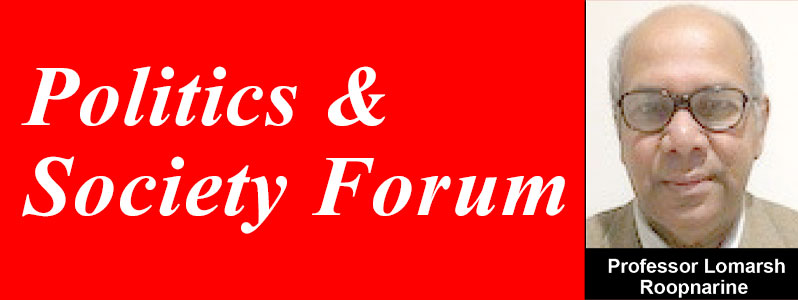LAST week, in this space, I provided a historical and contemporary analysis of standard and non-standard Caribbean languages regarding how they were introduced, formed, and evolved. The result is that the Caribbean has a rich diversity of languages. This week, I will examine the pros and cons of standard and non-standard languages of the Caribbean.
It is common knowledge that standard languages – English, Spanish, French, and Dutch – have occupied a prominent place and position in the domain of verbal and written communication in the Caribbean. Standard languages are used in education, commerce, and the civil service. It is not possible to have a decent high school education without being exposed to a standard language. The school system demands that students be versed in at least one standard language to graduate, or to even demonstrate some sign of progress, namely, that they have attended a school in which a standard language is preferred. In Guyana, when asked where you went to school, the preferable answer is, “I attended Queen’s College or Bishops”, indicating that speaking and writing proper English is the norm in these schools.
Similarly, and as in the case of Guyana, Standard English is used in the criminal justice, political, and economic system. In the media, on television, radio and in print, English is the preferred language, although some local programmes with non-standard English have been on the rise for the past two decades. Nevertheless, English predominates in programmes that are aired especially from the United States. However, the knowledge and use of standard languages in the Caribbean is not a setback, despite their colonial underpinnings, but a progressive one. Having a good command of any standard language will move you beyond the confines and concentric boundaries of being mono-lingual in ever globalised and shrinking world. You will not be left behind as an individual or citizen of any nation because a good command of any standard language sharpens awareness, fosters interdependence and understanding, strengthens skills and expands opportunities.
Despite the positives of having a good command of any standard language, however, there are drawbacks. At the core of Caribbean communication is what one scholar calls a “cancer of insularity.” There is little communication, for example, between the Spanish and English-speaking Caribbean, rendering a poor understanding of the basic dynamics of the Caribbean from one region to the next, especially among the younger generation. I will state firmly that a few Guyanese know of the similarity between Cheddi Jagan and Juan Bosch of the Dominican Republic and vice versa. There have been, however, in the recent past some efforts to bridge the language insularity in the education system. Spanish, for example, is offered more regularly in schools. These efforts have unfortunately only scratched the surface in terms of producing expected results. The practice of standard language insularity across the Caribbean remains a stumbling block to effective integration among nations that share a common history of colonisation, slavery, indenture, dependency, invasion, glory, and so on.
If the standard languages of the Caribbean have been suffering from insularity, then the Creole languages are not far behind, albeit in their own unique form and fashion. I am referring to the marginalisation and stigmatisation of the Creole languages. Creole languages are often excluded from the education curriculum, although there have been some heated debates to include them at the university level. In the criminal justice system, court proceedings are not conducted in Creole languages even when everyone in the courtroom understands a particular Creole language, for example, Pidgin in Guyana. While there might be cases where standard languages are translated into Creole languages, this practice is not consistent. The result is that the defender, without a lawyer, who does not have a good command of the standard language to hear his case might very well be a victim of communication rather than breaking the law.
Equally unsettling is that Creole languages are often stigmatised. The individual who speaks Creole outside his inner circle is seen as inferior and undeveloped by others who do not regard Creole language as a proper way of speaking. Interestingly, too, if someone speaks the English language in a Creole setting, he may be stigmatised for sounding like an “English Duck”, quacking a twang in the wrong place. Both situations lead to a lack of confidence and avoidance from the speaker. Furthermore, in some university settings, it is believed that the Creole languages impede the attainment of proficiency in a standard language, meaning that the students mix-up the two languages, resulting in ambiguous verbal and written communication skills.
There are some positives of the Creole languages, however. Politicians have realised that a closer relationship with their supporters require them not only to speak in the language of their supporters during the campaign season but more regularly. It has also dawned upon nation-states that Creole languages represent a positive symbol of culture and identity. Some Caribbean islands have taken a step forward to have Creole be recognised alongside standard language as a national language such as Creole in Haiti and Papiamentu in the Netherlands Antilles. What is also remarkable is that artists have been using Creole as a form of expression, and writers (Edward Brathwaite, V.S. Naipaul), poets (Martin Carter, Dereck Walcott), singers (Sparrow, Chalkdust) and storyteller (Paul Keen-Douglas), come to my mind. (lomarsh.roopnarine@jsums.edu).




.png)









